THE BIG TREE IN THE ART VILLAGE
People's Artist Nam Chau, real name Nguyen Thanh Chau, was born in 1906, in My Tinh An village, Cho Gao district, My Tho province (now Luong Hoa Lac commune). He was the only son in a family of 8 sisters. His father was a civil servant at the Department of Commerce of My Tho province, and was later transferred to work in Phu Quoc.
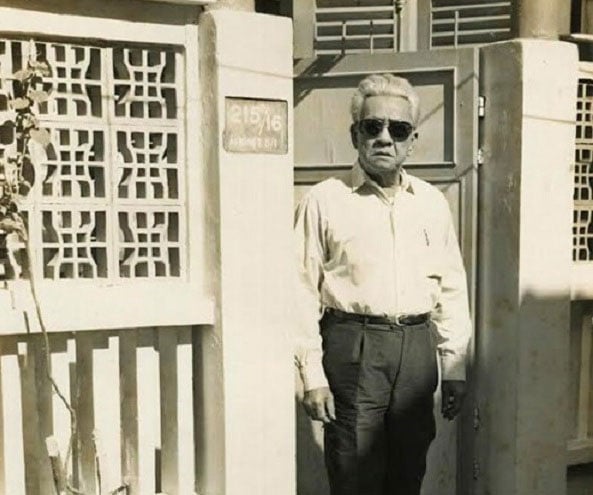 |
| People's Artist Nguyen Thanh Chau. Photo: Collected |
People's Artist Nam Chau is a composer of many famous cai luong plays, the first drama professor of the Saigon National Conservatory of Music (now Ho Chi Minh City Conservatory of Music) and the manager of many famous theater troupes since the 1930s. In the Traditional Room of Nguyen Dinh Chieu High School today, his name and image are placed in a prominent position along with famous people who were former students of Collège de Mytho.
According to his sharing in Bach Khoa magazine in 1968, the opportunity to become a singer came from his passion for the art of singing since he was a child, so after many unhappy things while working in Saigon, he returned to My Tho to meet old friends, then established a theater troupe to tour the countryside. Most of the members of his theater troupe at that time were his old classmates, except for 2 actresses. And from there he began to write plays for himself to perform, cai luong plays such as: Giot le cuong thuong, Ven tam long son which he composed at that time. "The audience at that time were mostly children of landowners and tenant farmers, the stage was the warehouses of landowners. Where it was luxurious, there were kerosene lamps, where there were torches.
The fee was collected by the landlords from the audience, and at night when they received about 20 coins, it was very good. The costumes of the actors and actresses at that time were blue satin long dresses with large silver flowers, belts, turbans, white cloth pants wrapped with leggings, and Chinese Ma-my shoes. Whoever played the king wore a yellow turban, an old mandarin wore a red turban, and a prince wore a blue turban. The plays were mostly short operas, such as the ones of Truong Tien Buu, Bui Kiem Nguyet Nga, etc. As for the songs, there were only Nam Ai, Nam Xuan, Tu Dai, Phung Hoang, Hanh Van, Giang Nam, Binh Ban, but there was no Vong Co, even the 4-beat Vong Co Hoai Lang.
He collaborated with troupes such as: Tieu Hoc Ban (in 1925, of Mr. Hoi Dong Hoanh in Mo Cay district, Ben Tre ); Tai Dong Ban (in 1926); Tran Dac (in 1927, of Mr. Tran Dac Nghia in Can Tho); Established Nam Thanh troupe in Hanoi (in 1935); Dai Phuoc Cuong (in 1936, of Mr. Nguyen Ngoc Cuong and Ms. Nam Phi in Saigon). He was also the Director of troupes such as: Ca Kich Troupe Nam Chau (1940 - 1945); Con Tam Troupe (in 1946); Viet Kich Nam Chau Troupe (1948 - 1955); Troupe Anh Chieu Duong (in 1967). In his writing career, he left behind many classic works such as: Giot le cuong thuong, Ven tam long son, Vo Tong sat tau, Nguoi dien biet love (co-composed with Le Hoai No and Tran Huu Trang); Ngoan has a good attitude; Ben Muoi Hai; Clams, mussels, clams and many other plays in the drama genre...
Being a multi-talented artist, besides reformed opera and drama, People's Artist Nam Chau was also successful in the film industry as a director and screenwriter. In 1956, he wrote the story Quan Am Thi Kinh and then cooperated with My Van company to film this film in Hong Kong and it was extremely successful, the theater was packed wherever it was shown. After that, he continued writing the fairy tale film Nguoi beautiful Binh Duong and chose Tham Thuy Hang as the main actress. Since then, Tham Thuy Hang has been called the beauty of Binh Duong. There was a time when People's Artist Nam Chau also organized dubbing for foreign films and he had a unique initiative to put Vong Co... into the film. In 1957, when the Indian film The Wind of Real Estate was shown at Tan Dinh cinema, the audience had to line up to buy tickets because the main actor of the film was Ganessan, an Indian, but sang Vong Co very well. It turned out that from the Indian song, People's Artist Nam Chau had converted it into Vietnamese lyrics and the singer in the film was Vong Co king Ut Tra On. Or the movie Golden Heart, later changed to White Angel, attracted audiences on television screens in 1968...
LIVING FULL OF ART
In Bach Khoa Magazine No. 278, published in September 1968, People's Artist Nam Chau "spoke from the heart" to journalist Le Phuong Chi. There, readers saw a Nam Chau passionate about his profession, an artist responsible for his profession: "Regarding the issue of plays, I advocate maintaining morality and ethics through artistic means. Therefore, the plays performed by my troupe are mostly difficult to understand because the dialogue is very concise. My concept of plays up to now is that a person's whole life is condensed to perform for a few hours on stage, so it needs to be concise, condensed and the characters in the plays must have distinct personalities. Because of this concept, when practicing plays, I am very strict with the actors.
I force my brothers to follow every word in the play. Each version must be sung exactly like the version, but I hear some young brothers singing Oan, Nam, Bac almost like Vong Co singing, sometimes I feel so angry that my chest almost bursts. After a while, I hear the way they speak almost like listening to their own singing and playing, but I find it strange, like watching someone else's play. Because when you go on stage, each of you is strong and determined, I say that not because I blame you, because young brothers today are in a situation where they have to live in a hurry to keep up with the world around them.
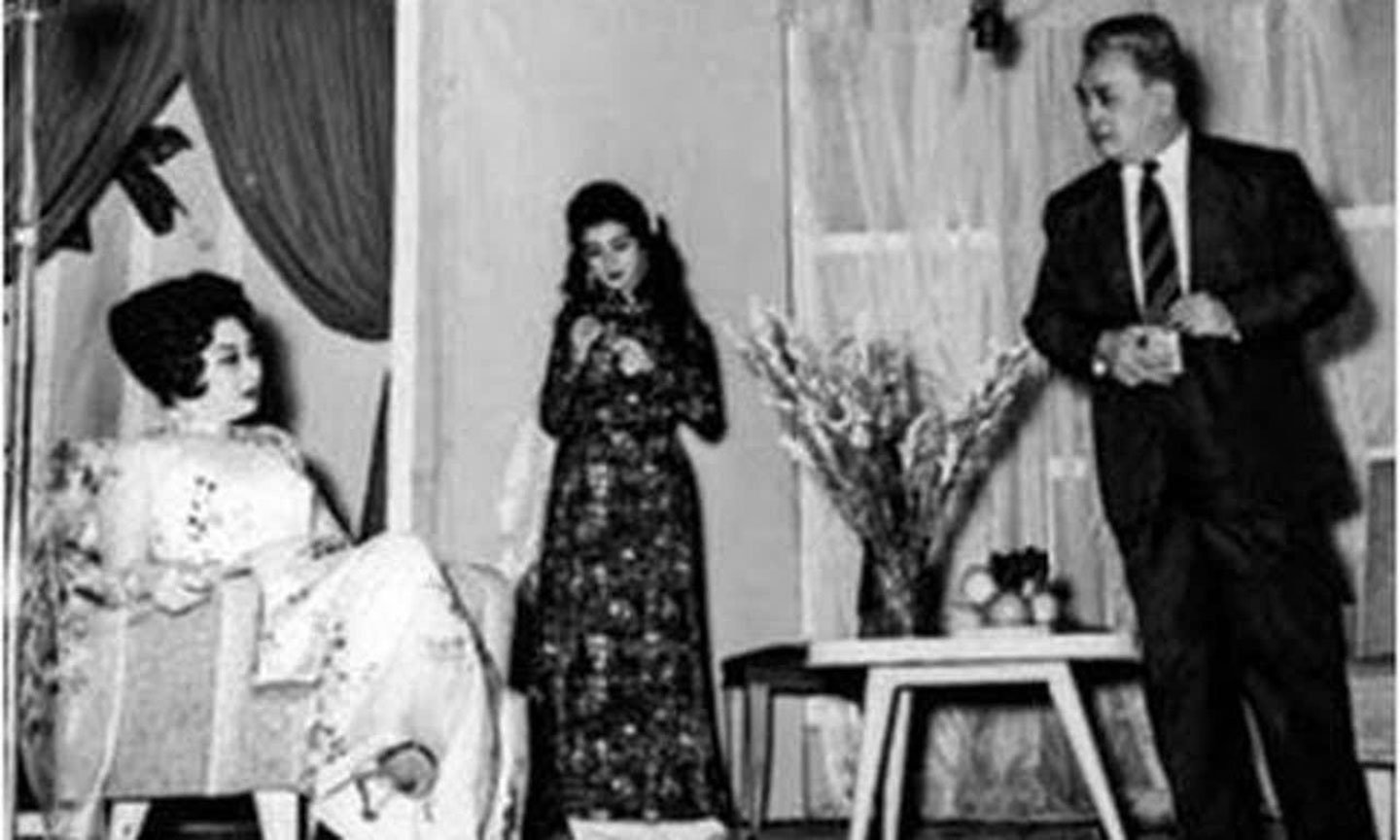 |
| People's Artist Nam Chau performs on stage. Photo: Collected |
Journalist Le Phuong Chi recorded the words of People's Artist Nam Chau: "There is a French proverb: Art cannot feed people. Perhaps it is because I insist on maintaining the concept of art for art's sake. I was born to sing, to love living for the stage, to want to raise my acting level and to enjoy the stage of my country to the same level as the world, so how can I get rich? I used to be the owner of 2 or 3 theater troupes, the opportunity to make money was in my hands, but I still advocated establishing a theater troupe to sing the plays I liked, to follow my wishes.
In 1948, 1949, 1950, my Viet Kich Nam Chau troupe performed at the Aristo theater. There were many nights of heavy rain, I raised the curtain to perform for only 7 or 8 people, and I performed, as long as there were people in the audience who were my friends. I also knew that performing like that was a loss, but I never had the heart to return the tickets to the audience who braved the rain to come from Khanh Hoi, from Tan Dinh because they loved me. Seeing the theater was so empty, they bought 3 or 4 tickets each to support me. However, those nights we performed very well. We, I said, had Ba Van and Phung Ha among us. Because we performed and had people who knew and watched, it was great. Just like Ba Nha and Tu Ky, you hear that. Also because I advocated serving pure art, every time I set up a troupe, I failed.”
Talking about the cai luong artists at that time, he expressed his disappointment: "The actors and actresses had poor acting skills and did not practice according to the director's instructions. Every song sounded like a Vong Co tune, the dialogues were sometimes angry, sometimes heroic, and dragged on and on, as if they were about to lose Vong Co. They did not learn the lines of any play by heart, and when they went on stage, they were stiff, to the point that I did not dare to give my best plays to any troupe to perform. For fear that the younger members will ruin them or make a hybrid. Because the plays I wrote were very concise and succinct, but I did not learn them by heart and perform them correctly, if I made a mistake in a word, the audience would not understand the words of the character in the play, and if the singing did not match the tune of old versions such as Bac, Nam, Oan, how could I portray each role of each character? How could the composer's thoughts and the plot of the play be conveyed to the audience?
As a talented composer, a legendary “actor” and the owner of many theater troupes, People's Artist Nam Chau could not maintain it for long because his lifestyle, way of thinking and working purely for art could not withstand the times. Then he had to say in disappointment: "I still believe that in all disappointments, there is no disappointment as great and heavy as the artist himself who cannot withstand the decline of art."
MAI HA
Source: https://baoapbac.vn/van-hoa-nghe-thuat/202507/nghe-si-nhan-dan-nam-chau-ca-doi-cong-hien-vi-nghe-thuat-1046543/


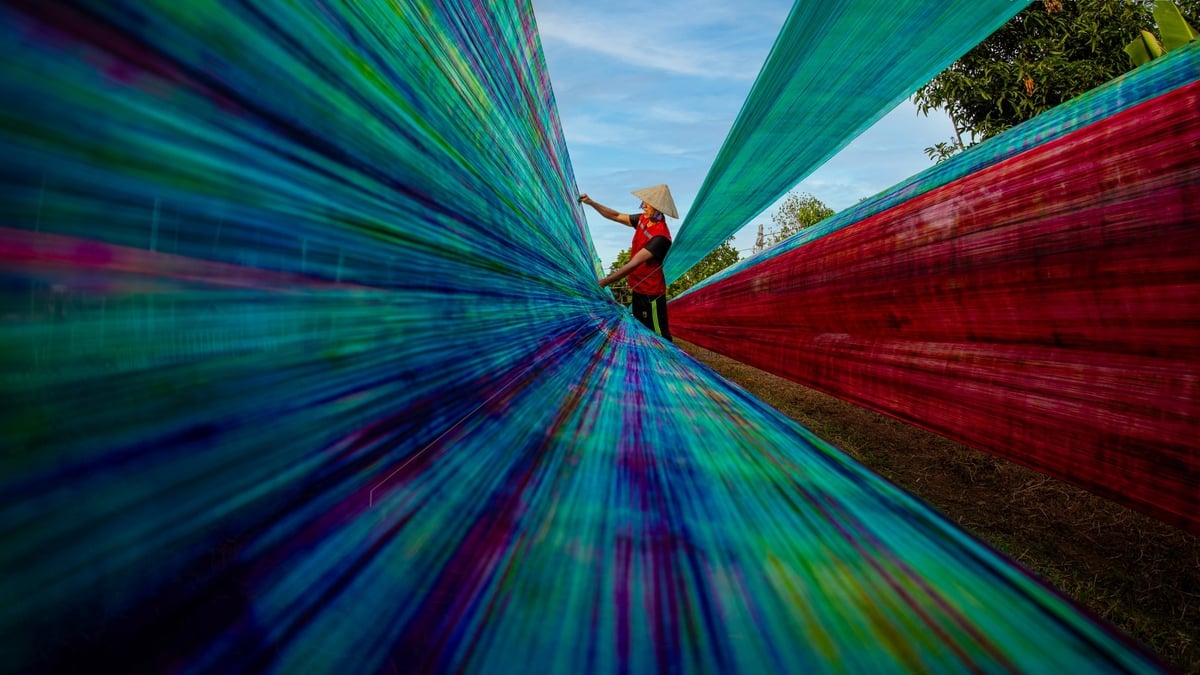





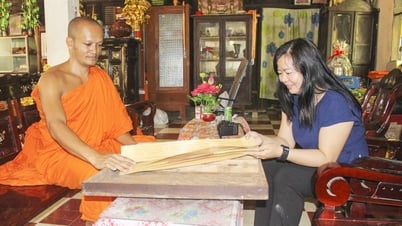

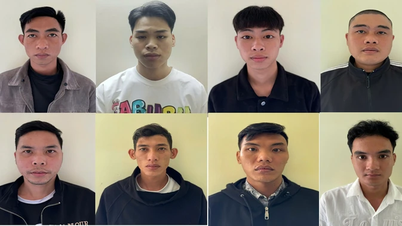

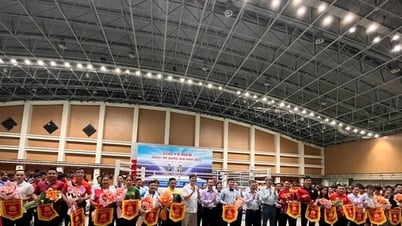


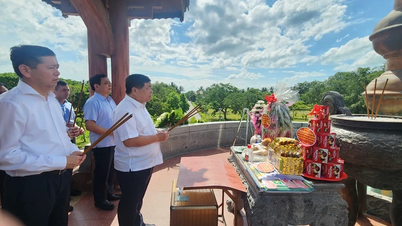
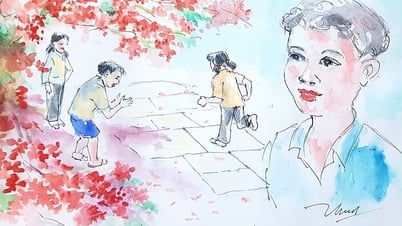




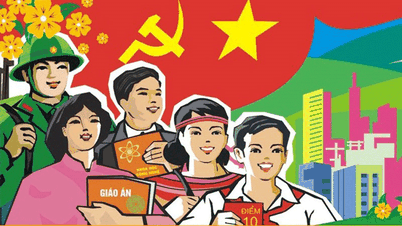


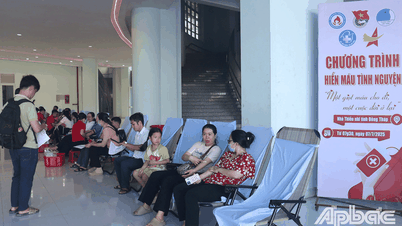
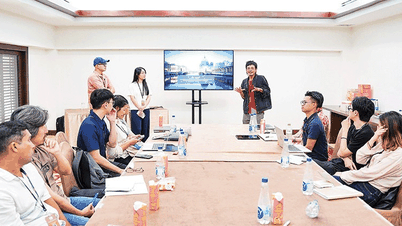
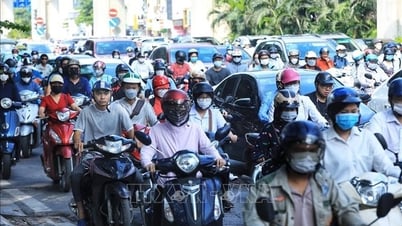


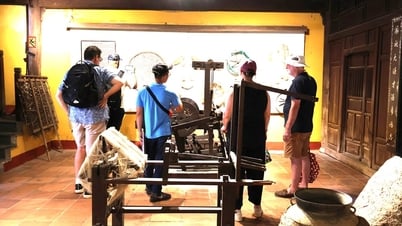

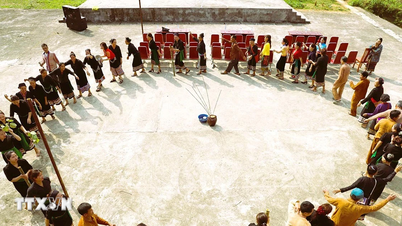
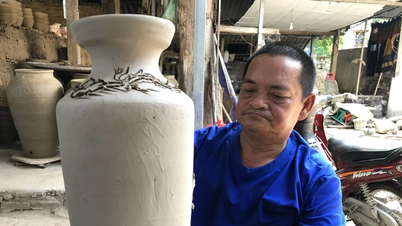

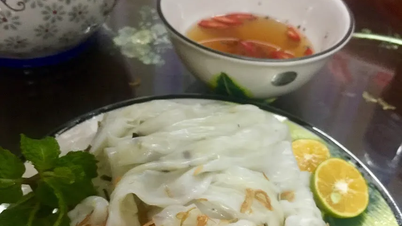



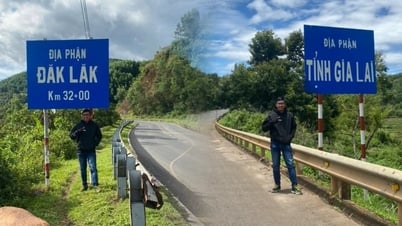

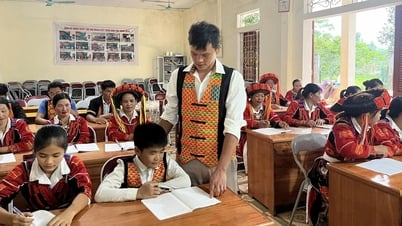





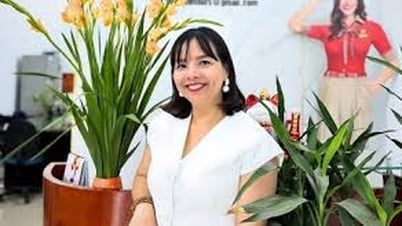

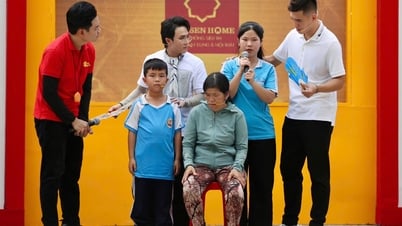

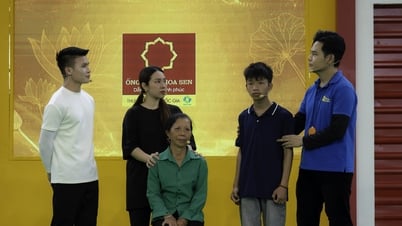
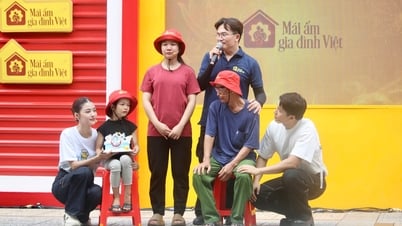
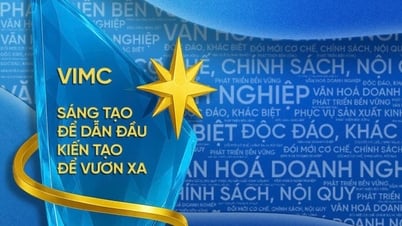

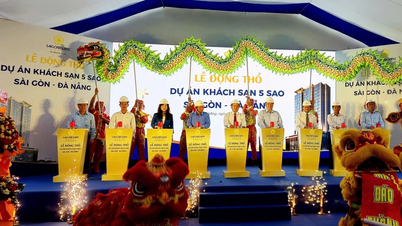

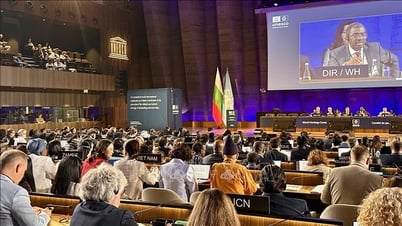
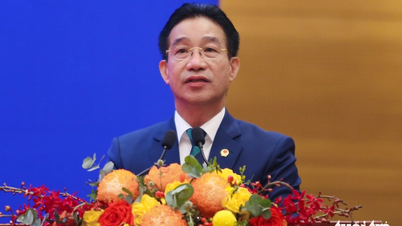
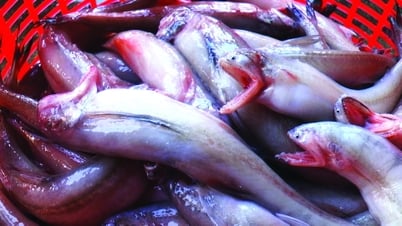



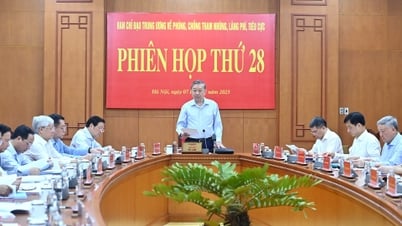

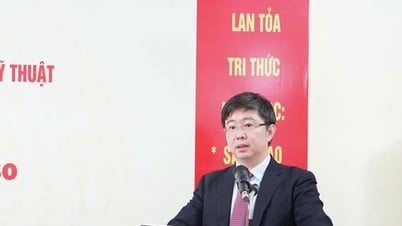






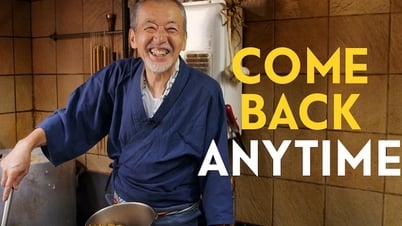
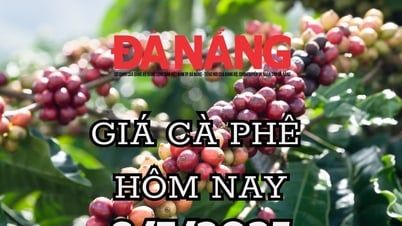

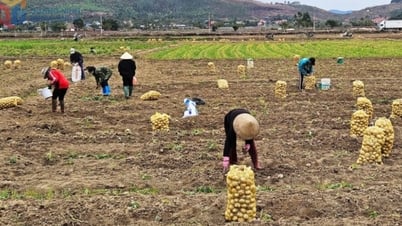

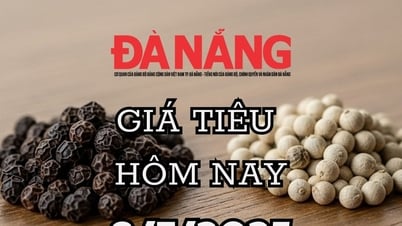
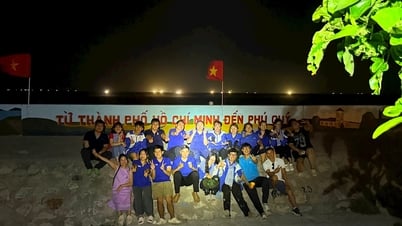












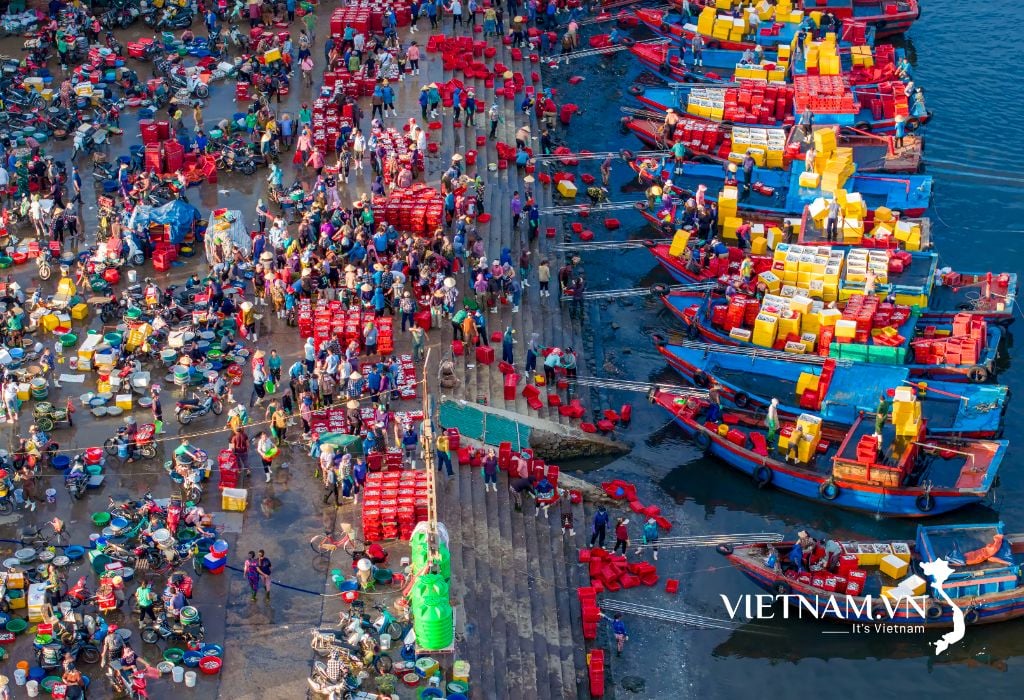


Comment (0)